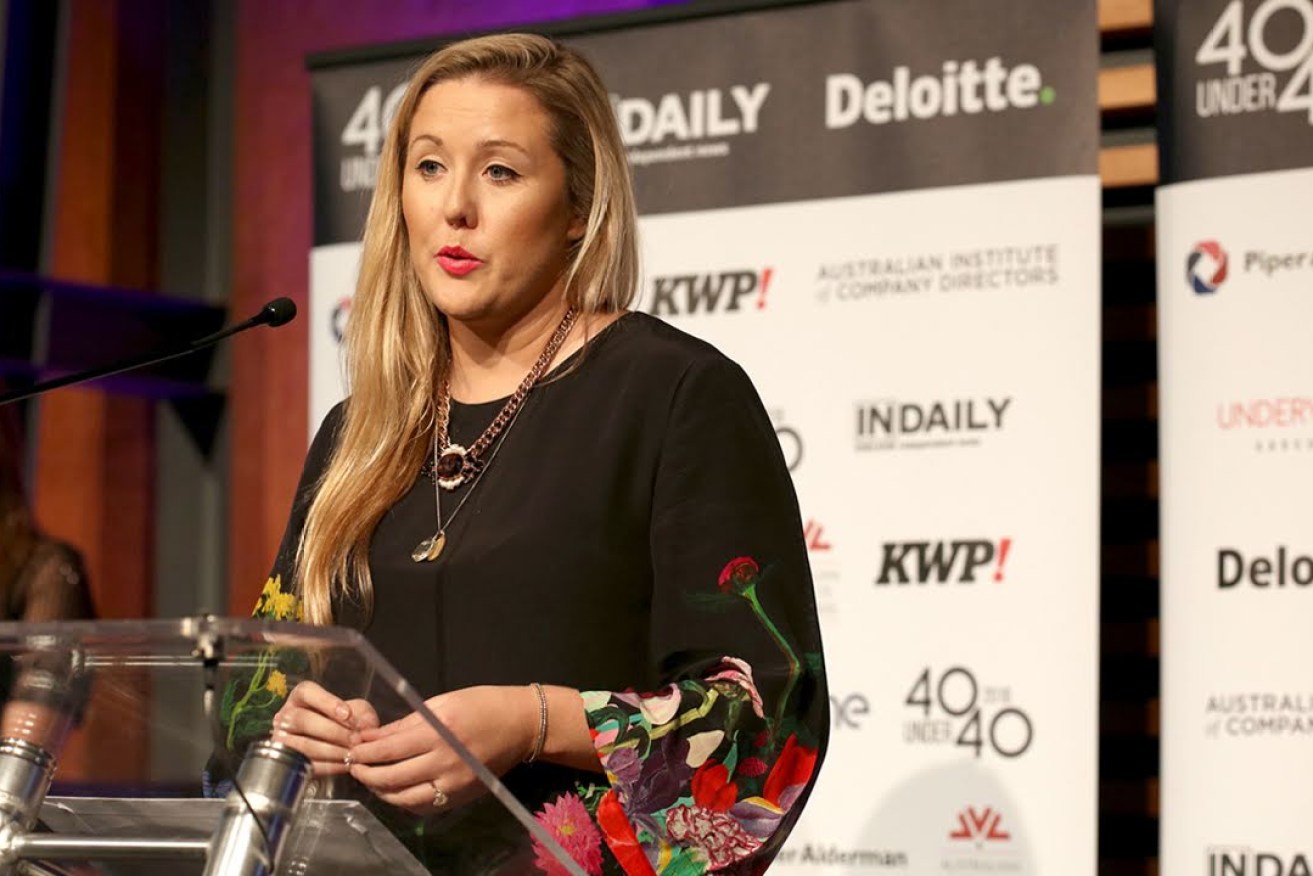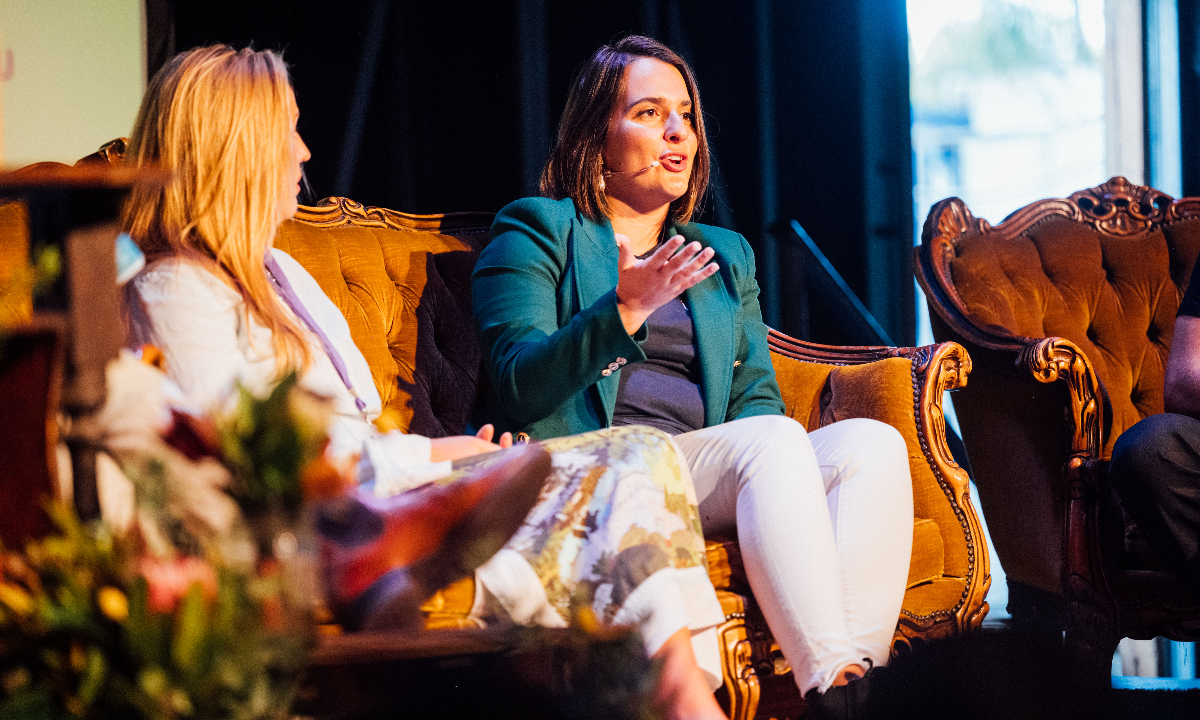Planning the exit: Why an end goal should be front of mind for founders
At _SOUTHSTART, business leaders discussed the importance of having a final goal in mind from the very beginning of a company’s formation.


Sasha Baranikov from Uniti Wireless. Photo: Tony Lewis/InDaily
Much is said about how to run a business, but for many founders, the end goal is as important as the day-to-day.
Knowing when to make a successful exit from a business, whether that be via sale, IPO or merger, is key and structures a company’s development right through to which early-stage investors are brought on or which direction the firm takes.
At a _SOUTHSTART panel earlier this month, leaders explored how transformative an exit plan can be for a business journey, and told attendees their own stories with exits (or in Upcover founder and CEO Skye Theodorou’s case, how she’s moving toward one).
“It’s really important to create that structure from the very start, so we work with founders right from the incorporation stage right through to the exit,” said panel member and LegalVision senior lawyer Miles Guggenheimer, who specialises in business sales.
“When you start a business, don’t think about the bad things that could happen.”
Panel member Sasha Baranikow, who co-founded South Australian wireless broadband and telecommunications provider Uniti Wireless which went on to debut on the ASX and was acquired for $3.73 billion by HRL Morrison & Co and Brookfield Asset Management, told InDaily that she helped set the company up for a merger or a public listing from the beginning.
“We went along that path and accelerated quite quickly,” the inaugural winner of InDaily’s 40 Under 40 awards said.
“It didn’t play out exactly how your playbook might look, but it got within the bandwidth range of what we thought was possible.
“There’s a point where, in some of these corporate environments, there are people that aren’t there to make friends – they’re there to get the outcome and seek the opportunity, and it’s with or without you.”
She said listing Uniti Wireless was a “pinch me moment”, but also a “relief” at the same time.
“We were in a place where everything always happened so quickly. You need your mind to click into a space very quickly,” she said.
“What I’ve learned through the process of things just being flung at you is you need to build an ability to regulate that and not dwell on the past, but where are you going?
“You’ve got the choice of how you choose to act, feel, be and ask what’s next.”
At the panel, Baranikow said in planning the exit, even board decisions early on contribute towards that final goal.
“Something to consider with board appointments is are they the person that is going to be the person the company needs in five to ten years, not the person for right now,” she said.
“It’s about getting the right people in the room that can actually understand and appreciate the destination that we’ve mapped out to them.”

Upcover co-founder Skye Theodorou at _SOUTHSTART. Photo: Supplied.
For Skye Theodorou – founder of Upcover which provides business insurance online – it was about what she didn’t put in place that mattered.
As a lawyer herself, she purposefully avoided setting up a governance structure because “I want to ensure independence”.
“Everyone should know their industry and how some acquisitions and mergers might happen and who the players might be,” she said.
It even goes down to what investors come on board in the early stages. For Theodorou, finding a blue-chip investor was important to build up her company’s profile.
“If you’re raising in the Australian market, you need so much depth and backing to demonstrate that you are game-changing in your industry segment,” she said.
Baranikow said it was “never too early” to have these kinds of conversations about where a business is headed.
“I think as a founder, nobody can intrinsically appreciate the business and what it is and where’ it’s going,” she said.
“The industry people that can come into your orbit to help you along the path…it’s never too early to have conversations because just because they’re industry doesn’t mean they’re the best fit to match what you’re doing.”




